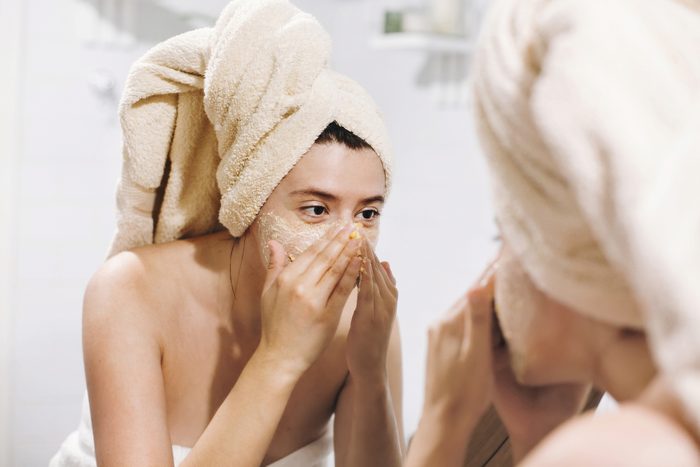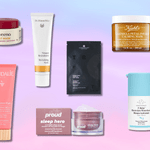How to Tell If You’re Exfoliating Too Much

Turns out you *can* have too much of a good thing.
I was always told that exfoliating was a necessity. As someone with oily, acne-prone skin, I stocked up on drugstore-brand scrubs as a teen and now use chemical exfoliants as an essential part of my skin care routine. At one point, I was using either a chemical or physical exfoliant (and sometimes both!) nightly—until my skin started to look red and flushed. Even gently applying my daily SPF turned my face beet red.
After a facial, where the esthetician called out my skin for being red and sensitive, I found out the culprit was in my skin care routine. I was exfoliating way too much, making my skin prone to irritation even if I wasn’t actively irritating it.
I talked to experts, Dr. Sandy Skotnicki, a board-certified dermatologist with Bay Dermatology Centre in Toronto, and Dr. Malika Ladha, a dual-board certified dermatologist based in Toronto and Canadian Dermatology Association resident and fellow society co-chair, all about exfoliating, over-exfoliating and over-exfoliated skin.
(Related: 6 Microbiome-Boosting Skin Care Products You Never Knew You Needed)
What is exfoliating and why is it important?
Essentially, exfoliating is the removal of dead skin cells, dirt and oil from the skin’s top layer (a.k.a. the epidermis). “Our skin is always naturally exfoliating itself, you get a new top layer about every 30 days,” says Skotnicki, adding that over time, that cycle slows down.
There are different types of exfoliants including chemical products like glycolic acid, alpha hydroxy acids (AHA) and beta hydroxy acids (BHA). There are also manual exfoliants, which typically work by physically scrubbing the skin.
These products can be great for your skin, especially as you age. “You have extra layers on the face so removing a few can help you look brighter and shinier. It can also improve the delivery of certain products as you get older,” says Skotnicki. Plus, according to Ladha, exfoliating can help those with acne-prone skin or oily skin as the process removes dirt and oil which can clog your pores and cause acne.
So, can you over-exfoliate?
Absolutely. “It’s something that we derms commonly see,” says Ladha. “When patients come in with irritated or inflamed skin that can appear as itchy red patches and an increased sensitivity to products that normally wouldn’t irritate them, that’s when we know someone’s exfoliating too much.” Plus, using manual exfoliants on your face can cause blood vessels to break if you do it often, says Skotnicki.
Skotnicki notes exfoliating once a week is fine for most people and can be super helpful if you struggle with clogged pores or acne.
What does over-exfoliated skin feel like?
Along with irritated and inflamed skin, itchiness, redness and increased sensitivity be on the lookout for a burning sensation or skin tightness. “As you remove [the top layer of your skin], you’re going to make your skin more reactive or intolerant to things that you put on it,” says Skotnicki. “One of the ways sensitive skin manifests from over-exfoliation is as you go in to use your products as you normally would, it would irritate you and you feel stung.”
What are the long-term effects of over-exfoliating?
When there’s inflammation for a prolonged period, there’s a small risk of causing pigmentary changes, says Ladha. “Hyperpigmentation, or when the skin gets darker, or hypopigmentation, where the skin gets lighter compared to the surrounding skin, could occur if there’s prolonged ongoing inflammation.” Pigmentary change from over-exfoliating is more of a risk for darker skin types.
So yes, I was way overdoing it with exfoliating. Luckily, since cutting back, I’ve noticed my skin feels less irritated, looks less red and I can now apply all my other products without feeling like my skin is burning.




